Toward the North is the first anthology of thirteen short fiction pieces written and translated by Chinese-Canadian writers during the last two decades, each of which depicts the contemporary lives of new Chinese immigrants to Canada, and illustrates newcomers’ perspectives of multicultural Canada. The theme of the anthology is Chinese transnational and cross-cultural life experience. A fundamental concern shared by most of the authors is to redefine their characters’ cultural identity in their acculturation across times and space. In these stories, the exploration of the relationship between Chinese immigrants and Canadians extends beyond “yellow”/“white” binary model, revealing interactions between the Chinese and other ethnic communities. Struggles between cultural assimilation and resistance are vividly and captivatedly portrayed. The authors’ approaches to their characters’ life experience of culture’s in-between displays an intriguing diversity both in content and in styles.
“An impressive selection of finely translated fiction representing recent work by many of the most active Chinese-Canadian writers, these stories speak from a variety of perspectives to the contemporary Chinese-Canadian cultural moment. Set mainly in Canada by writers with deep experience of the country, the stories address the challenges of migration and cultural change, the personal costs exacted by the slow process of building new lives, the burdens of history, and the difficulties of communication. But they also offer, often poignantly, at times with sly humour, narratives of renewal, rebuilding, and new beginnings. A very welcome addition to the growing bookshelf of work in English by Chinese-Canadian writers.”
— Joseph Black, Professor, Department of English, University of Massachusetts Amherst
“These stories, translated from the Chinese, will knock your socks off. Universal themes of finding and losing love, family conflict, discovering a sense of home and belonging, death and murder(!), and the birth of babies are presented through the specific, lived experiences of first generation Chinese Canadians.”
—Catherine Sheldrick Ross, Professor Emerita, University of Western Ontario, London
Hua Laura Wu was born in Beijing, China. She came to Canada in 1985. She studied comparative literature and Chinese literature at the Centre for Comparative Literature and the Department of East Asian Studies, University of Toronto, where she graduated with her PhD. She is currently an associate professor of Chinese language and culture at Huron University College in London Ontario. Her current research is a comparative study of Chinese Canadian writers who write in English (Asian Canadian literature) and in Chinese (Sinophone literature). She has translated many literary and scholarly works, from English to Chinese and from Chinese to English.
Xueqing Xu is Associate Professor in the Department of Languages, Literatures and Linguistics, York University. Her recent research interests focus on Chinese Canadian diasporic literature both in English and in Chinese, and on Chinese women literature. She has published numerous articles and chapters on Chinese Canadian literature both in Chinese and English during the past decade. She lives in Toronto.
Corinne (Cory) Bieman Davies is Professor Emerita at Huron University College in London, Ontario. She has published on nineteenth and twentieth century British Literature, and has travelled in China. Cory owes her interest in the literature of the Chinese diaspora to her love and respect for her Chinese Canadian daughter-in-law, and to her friendships with her colleagues in Asian Studies at Huron.
Jia Na Da/Canada – Yuanzhi (translated by H. Laura Wu and Cory Davies)
Grown Up – Xi Yu (translated by John Edward Stowe and Nora Creedon)
The Abandoned Cat, Timid Huang – Ling Zhang (translated by Zoë S. Roy)
West Nile Virus – He Chen (translated by John Edward Stowe and Nora Creedon)
Hana no Maru – Shiheng (translated by Dongfeng Xu)
A Western Moon – Chuansha (translated by H. Laura Wu and Cory Davies)
Vase – Yafang (translated by H. Laura Wu and Cory Davies)
The Smell – Xiaowen Zeng (translated by Lloyd Sciban and Shu-ning Sciban)
Little Weeping Millie – Daisy Chang (translated by Lloyd Sciban and Shu-ning Sciban)
Surrogate Father – Bo Sun (translated by H. Laura Wu and Cory Davies)
An Elegant but Stiff Neck – Tao Yang (translated by H. Laura Wu and Cory Davies)
The Kilt and Clover – Xiaowen Zeng (translated by H. Laura Wu and Cory Davies)
Toward the North – Ling Zhang (translated by Zoë S. Roy)

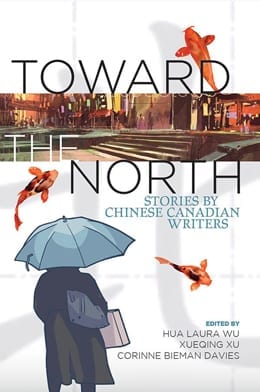
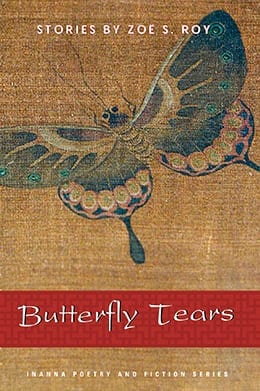
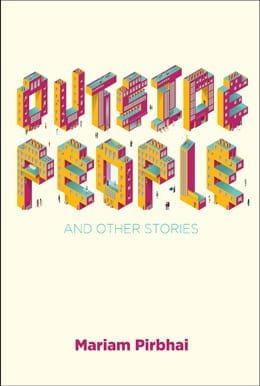
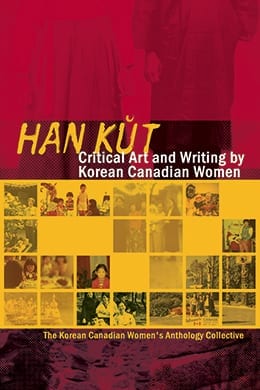
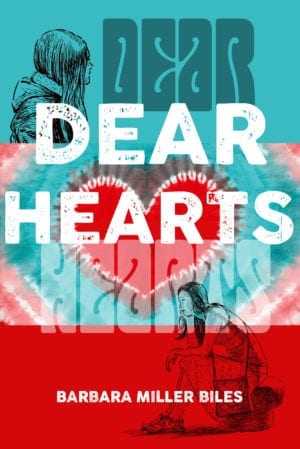
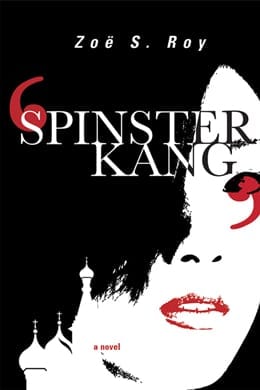
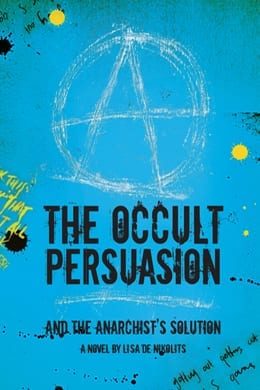
Jasmine Gui –
Toward the North: Stories by Chinese Canadian Writers
reviewed by Jasmine Gui
Loose Leaf Magazine – March 28, 2019
http://looseleafmagazine.ca/toward-north-stories-chinese-canadian-writers-book-review/
I was stoked to be asked to review an anthology of translated (a unicorn!) short stories, featuring three women editors, and published by Inanna Publications (what a combination!). I was intrigued by a collection of Chinese Canadian stories written originally in Chinese, spanning two decades, to see what kinds of diversity of content, form, and voice I would encounter.
Toward the North features a lovely selection of refreshing narrative voices. The positionality of the narrators in these short stories occupy liminality even within the Chinese Canadian writing landscape in Canada because many are first-generation writers who have a wildly different relationship with Homeland, identity and language.
Spanning multiple strata in society, the characters of these stories offer so much difference – a privilege not often offered to nonwhite literary characters in the Canadian writing landscape. They are also offered a banality that sweeping epic historical fiction or melodramatic family saga fiction don’t offer; characters in Toward the North are distinctly nobodies.
Chinese short fiction is an interesting genre because it’s so distinctly 20th century modern within the Chinese writing tradition, and that inheritance really comes to play in this anthology. To be fair, some of these stories were written in the 20th century! This genre was forged from a bulwark of attempts to write against tradition and politic that was seen as backward or repressive, and was often animated to write new traditions and funnel new ideas.
Short fiction allowed writers to capture what was popularly considered non-literary content.
The subject matter of Toward the North continues in this practice, and by focusing on the banal, mundane beats of life (echo-ing early European realism), ironically and creatively manages to capture the nuances of upheaval, of domestic and public traversals, of women’s voices and experiences, of economy and culture, and the fluidity of a diasporic generation whose lives are starkly delineated by migration – toward the north.
Stories like “Jia Na Da/Canada” by Yuanzhi and “The Smell” by Xiaowen Zeng approach cultural clash and domestic affairs with a self-assured dry humour. Others like “West Nile Virus” by He Chen, “The Abandoned Cat” by Ling Zhang and “Hana No Maru” by Shiheng are distinctly modern in tone, featuring narrators with strong interiorities.
The titular story of the anthology, “Toward the North” by Ling Zhang is the longest and final piece in the collection, giving it an extra weight that I think it deserves. In the story, male protagonist Zhongyue finds himself first in Toronto, and then at Sioux Lookout, working with a few members of the Ojibwa community living there. As the story unfolds, “North” is unpacked not just as a metaphorical space of possibility, but also as the site of violence and trauma. Characters from multiple intersections inhabit “Toward the North”: the hard of hearing mixed-race Neil, the Tibetan-born diasporic Dawa, Neil’s mother, and Zhongyue’s own marginality as an immigrant now estranged from his family, moving through the world of Sioux Lookout.
“Toward the North” is intriguing in presenting a cast of characters not often congregated, but it also seems to fall into storytelling patterns that I am wary of. At the end of the story, Neil’s biological parents do not survive, and Zhongyue makes plans to adopt Neil as his child. Is the Chinese hetero-male a flawed but celebrated saviour? What other characterizations were flattened to create Zhongyue’s complexity? Do I celebrate this character? The story ends but my wrestling continues, and I wonder about the possibilities of writing the future into the present, and how the Chinese writing community is also figuring, learning and unlearning the nuances of positionality through literature.
As I consider the stakes of world-building in Toward the North, I am reminded of the ongoing need for more anthologies, especially those highlighting the IBPOC writing community.
The translated element of this anthology is a strong piece of engagement for me through all the stories, as I identify the slight stilt of translated-from-the-Chinese sentence structures that form the building blocks of these stories. It reminds me that language is itself representation of a specific kind, and it also reminds me that translated or not, stories are mediated truths.
I read “Vase” by Yafang and am curious if a vase’s discourse will sound less ridiculous and less dramatic in Chinese. I wonder if the epistolary form in “Little Weeping Millie” by Daisy Chang animates a different intertextual body of writing in Chinese.
As a reader, writer, editor and artist, I am looking for different kinds of stories.
All kinds of stories need to be told, all kinds of lives are lived in our histories
All kinds of lives deserve space in our fiction and in our literary canons.
I think about what it means to have access to these voices, to read the inflections of domestic strife wrapped up in a distinct flavour of male fragility in “Surrogate Father” by Bo Sun, to consider Yang Xue’s actions through the lens of gender and social limitations in “An Elegant but Stiff Neck” by Tao Yang.
The more variety I read, the more I hunger to share and read literature beyond the Anglo literary sphere which we sometimes consider the whole of what matters.
In “Grown Up” by Xi Yu, Jiang Xue struggles to understand and communicate with her daughter Wenwen who had been left behind in China while she migrated to Canada, and then brought over at the age of 15. The climax of the story is contingent on a box of condoms, and not in the way you might expect. A sharp and almost playful weave of cultural, generational, immigrant, gendered and linguistic clashes. The turns are subtle, the characters are layered, the content is all-too-relatable, but only for some. Only for some.
I love translated literature because to me, distance and limited access is another way of knowing and understanding complexity. It forces us to reckon with our own limitations and to step with care because we don’t know enough.
What other stories are we not telling? Whose stories have we not yet heard? Toward the North is one wonderful answer. Who else? How many more? Our literatures need to resist simplification and monolithism, a or we run the risk of being represented and understood as a uniform identity as well.
Many of us are all too familiar with this process of continuous erasure.
So what shall we move toward?
Inanna Admin –
Toward the North: Stories by Chinese Canadian Writers
reviewed by Emma Rhodes
The Miramichi Reader – July 31, 2020
https://miramichireader.ca/2020/07/toward-the-north-anthology/
Toward the North: Stories by Chinese Canadian Writers is a thoughtfully coordinated anthology by editors Hua Laura Wu, Xueqing Xu, and Corinne Bieman Davies. Each story feels like it is presented in exactly the right place and at exactly the right moment in relation to the other stories it shares a cover with. The over-arching theme of the entire collection is Chinese transnational and cross-cultural life experience, and some other common shared themes include the relationship with one’s family, the significance of names, language barriers, and Western vs. Eastern ideologies.
Some Selected Stories
The first and last stories in the collection, “Jia Na Da/Canada,” and “Toward the North” respectively, are in large part about how Chinese and Canadian Cultures fit with one another in a shared space. While the introductory story suggests a disconnect between the two groups, the concluding story reveals many similarities in a community with Ojibwa, Han Chinese, Tibetan, and white peoples. In “Jia Na Da,” Feng Jian desperately wants to have a son in order to maintain Chinese tradition and fulfill the “revolutionary mission.” Feng Jian’s obsession with having a son comes into conflict with his wife who feels like she is being used as a breeding machine. Much is done with names in this story especially. “Fengjian” means feudal or feudalistic. The story concludes with twins being born, one boy and one girl. All four childrens’ names together form “Canada and flower.” Naming the children “Canada and flower” at the end of the story feels forced because the excitement is in the realization of a goal in a feudal Chinese tradition that in fact goes against much of what we value in modern Canada— like the freedom for a woman to choose, for the wife in this story does not want to get pregnant again after her first two children.
The concluding and title story, “Toward the North” instead shows readers exactly how well the Chinese, Tibetan, and Indigenous peoples get along, and further need one another. The story delves into herbal medicines used by both Asian and Canadian Indigenous peoples, and at one point Dawa is asked if she would take her deaf son—Neil— back to China and Dawa recognizes that what her son needs is the community he is in. Placing these two stories where they are suggests movement from a “multicultural” society where values between neighbours are significantly different and don’t mold with each other without being forced, to the conclusion that many groups can live together with both differing and shared values and have it make sense. Nothing is forced in the concluding story; the community makes sense.
Many Lives, Many Perspectives
Many stories in the collection feature abuse and partners who are unfaithful. One of my personal favourites is “Vase” by Yafang, which is in the perspective of a vase witnessing domestic abuse. After reading many sympathetic stories about abuse or maltreatment, “Surrogate Father” by Bo Sun stood out to me because it is in the perspective of an unfaithful husband, who has always been “lucky.” This husband impregnantes his wife’s best friend and suffers no repercussions. The choice to place this story after many that are sympatheic to wives who are abused or whose husbands are unfaithful reads as though the editors don’t want readers to be sympathetic towards Qiao Guangzong in “Surrogate Father.” However, nonetheless choosing to include this story deems it necessary to the collection’s overall purpose: to communicate Chinese-Canadian life experiences from many different perspectives. Qiao, though not particularly likeable to readers like myself, contributes to this goal.
One last honourable mention is “The Abandoned Cat” by Ling Zhang. I enjoyed this story because I thought it was an honest portrayal of mental illness. Often, folks with serious mental illness are encouraged to get a pet because they are more likely to get up to care for an animal than they are for themselves. The main character in “The Abandoned Cat” connects with her cat when she has no connection elsewhere. She does not speak English well, her husband leaves her, and she struggles with seemingly easy tasks like brushing her teeth. The cat whom she saves ultimately saves her.
Conclusion
I have only mentioned five of the thirteen stories in the collection here — not even half! Toward the North: Stories by Chinese Canadian Writers is a piece of work that any Canadian who believes in Canada’s claim to multiculturalism should read. Each individual story can stand alone but together are so expertly arranged that when read in order it takes the reading experience to a new level. The stories reveal to readers, through fiction, the lived experience of Chinese-Canadian immigrants and the struggles of building a new life across the globe, and of not only learning to communicate enough to get by but of adapting in order to live in an environment with often drastically different ideologies without losing or rejecting your past.